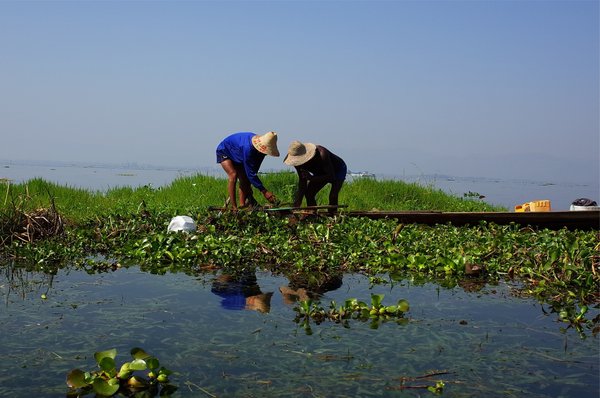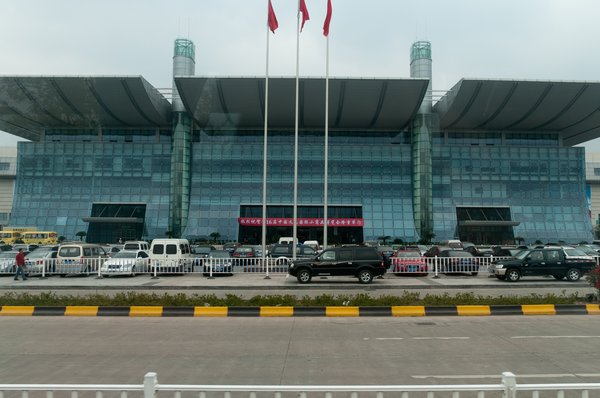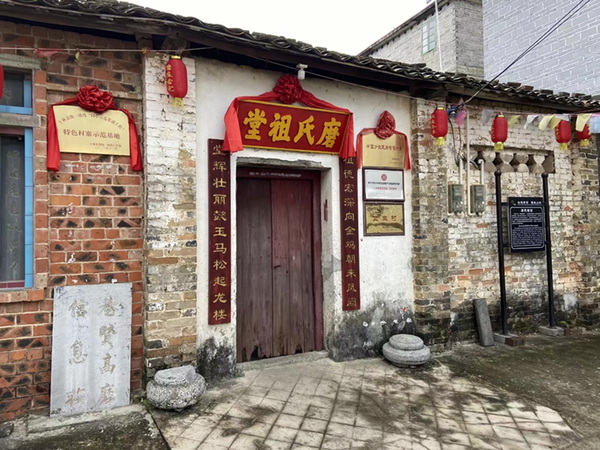Photos via MIDEQ China team.
The MIDEQ team in China organised a series of events, aimed at academics, as part of their "Building Capacity" impact interventions. These endeavours aimed to address some of the most critical problems, namely the lack of data and research about South-South migration and inequality specifically and the lack of capacity to produce such research in the Global South.
Conference
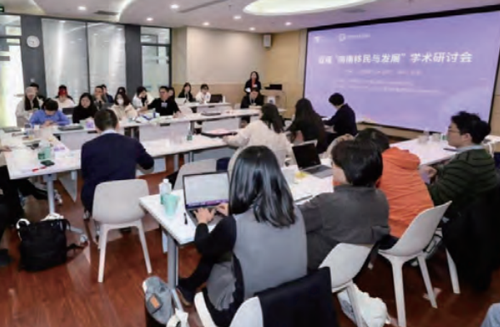
From 24-26 March 2023, the MIDEQ China team organised the inaugural "South-South Migration and Development" academic conference in Beijing. This conference aimed to delve into the significance of South-South migration in addressing inequality and fostering social development, while also examining its intersection with critical development issues like poverty, gender dynamics, and climate change. The event featured six distinct sub-forums covering topics such as China-Africa relations, contemporary politics, climate change adaptation, cultural exchange, social integration, and gender perspectives in migration. Scholars from prominent institutions including Peking University, Beijing Foreign Studies University, and Sun Yat-sen University shared their research findings, totalling over 100 participants. Professor Jixia Lu, Co-Investigator of the MIDEQ Hub, delivered the opening remarks, stressing the necessity for innovative approaches to understanding and narrating the complexities of South-South migration. Additionally, Research Assistant Dongsheng Wang contributed with a presentation on China-Africa relations and new Chinese migrants.
Seminar Series
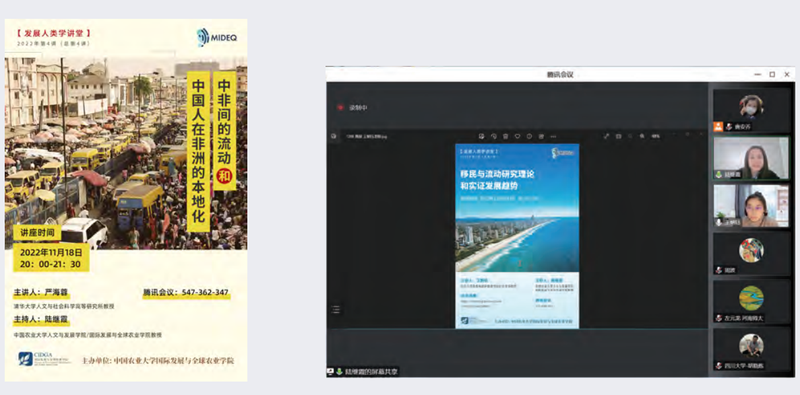
From November 2022 to April 2023, the MIDEQ China team organised a series of seminars focusing on the theme of South-South migration and development. These seminars featured esteemed migration scholars from various institutions such as the Chinese Academy of Social Sciences, Tsinghua University, and Zhejiang University, among others. Topics covered in the lectures included frontier theories of international migration, labour migration between China and Africa, border migration, and the history of overseas Chinese. The seminars attracted a diverse audience, with approximately 200-300 participants joining each session either in person or online.
Overall impact
Through these activities the team has established a migration research centre based at China Agricultural University (CAU), which is intended to be a leading think tank focusing on migration and development. The aim is for the centre to become a hub for research on migration, inequality and development, in the context of China and the Global South. Through this initiative, the team aspires to decentralise the discourse surrounding migration and development, fostering a more inclusive and nuanced understanding of South-South migration.

